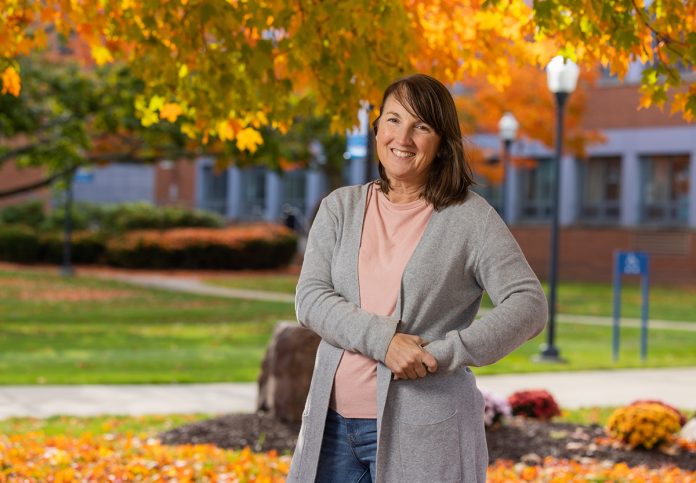Helping students thrive in an increasingly interconnected world may sound like a tall order for a teacher, but for Julie Heller, you might say it’s just another day at the office.
Heller, a graduate student in the TESOL (Teaching of English to Speakers of Other Languages) master’s program at Southern, has been an educator for 24 years. And with a background in bilingual and TESOL education, and global travel experience that included two weeks in Japan as a Fulbright scholar, Heller is ready to take her skills to another level: she’s one of 50 public school educators in the country chosen to participate in the National Education Association’s Immersive Fellowship Around Teaching Global Competency program.
The program includes yearlong training and educational sessions and a capstone project, and culminates in a 10-day field study to South Africa next July. Fittingly, Heller’s love of reading and language put her on the path to Cape Town and Johannesburg.
“Literacy is a right, it’s not a privilege. We should be working hard to make sure every kid is literate,” Heller said.
For Heller and her cohort colleagues, the assignment is set: the NEA’s fellowship program aims to enhance teacher knowledge to improve global competency in their school communities. Heller has noticed there is no shortage of examples.
As an English language specialist, Heller is the literacy and content coach at Nonnewaug High School in Woodbury. Her role includes collaborating with teachers to infuse literacy strategies throughout the school and teaching a literacy class for students who are English language learners. Among them are several students from the Ukraine, and another student from China who didn’t speak English at all when she came to Nonnewaug. Heller was troubled at the challenges the EL students face.
“I’m really passionate about English language learners,” Heller said. “These are children, they need to be able to learn English so they can function. That’s true for all kids, but especially when they’re coming from horrible, war-torn situations.”
Her love for reading and writing started early, but Heller’s approach to teaching has evolved through her experience. A stint in the Air Force fresh out of high school, and a Master of Arts in Teaching degree later, she tuned in to her own instincts about how to connect with her students. She believed the way to win them over about literacy was to let them decide what to read, and make sure it’s content for their reading – not grade — level.
“A kid needs to be reading 90 percent of the time at his level. Once they’re doing that, they might be ready to bump up a level. Give them choice,” Heller said.
As the NEA Global Learning Fellowship looms for Heller, it offers the opportunity to deepen her knowledge by exploring the historical and cultural context of South Africa, to learn about its education system. The cohort will meet with policymakers and business and nonprofit leaders, and will visit schools to meet with other teachers, students, and administrators.
In between the busy learning curriculum, the NEA cohort will observe classrooms in action, attend an educational forum with community-based organizations, and participate in a presentation focused on the current state of education in South Africa.
They’ll also meet with an eyewitness present during the apartheid period in South Africa, and take a guided tour of Constitution Hill, a former prison complex to learn about South Africa’s journey to democracy.
The intense itinerary is likely to include some heart-wrenching moments, Heller said, but the learnings ahead are an opportunity to gain understanding and insights that the fellowship cohort can share with their educator colleagues.
“South Africa, for a long time, lived under apartheid, and they are still dealing with that division in their society but seem to have made some inroads,” Heller said. “We’ll be going to the Nelson Mandela Museum and seeing a lot of that history. It’s a tough thing to read and hear about. It will be hard, but this is how you grow and learn.”


